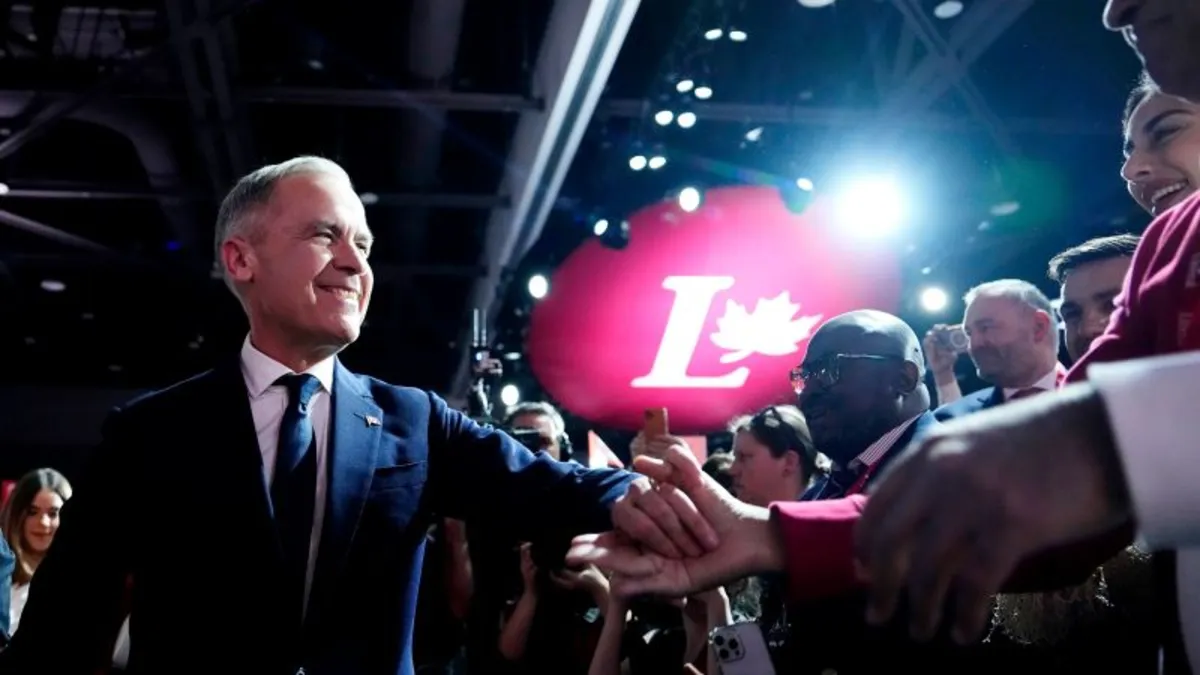
Canada is poised for a significant political shift as Mark Carney, a relatively new figure in the political arena, prepares to take over from Prime Minister Justin Trudeau. Carney, who has dedicated decades to a career in finance, is now set to lead the Liberal Party into the upcoming federal elections, leveraging his extensive experience in navigating global economic crises. His unique background may prove beneficial for Canada as it faces challenges arising from trade tensions with the United States, particularly due to the ongoing trade war initiated by President Donald Trump.
Mark Carney was elected to lead the Liberal Party on Sunday, marking a significant milestone in his political journey. Although he has never held an elected office, speculation about his potential entry into politics has surrounded him for years. The Liberal Party has actively sought Carney’s expertise for over a decade, especially as he played a crucial advisory role in Trudeau’s economic recovery plan following the Covid-19 pandemic. His official political debut came only after Trudeau’s resignation announcement in January, making Carney the unusual candidate for prime minister without a parliamentary seat.
Born in Fort Smith, Northwest Territories, and raised in Edmonton, Alberta, Carney’s upbringing shaped his Canadian identity. With both parents being educators, he developed a strong foundation in learning and community values. As a nod to his Canadian roots, Carney enjoyed playing ice hockey as a goalie during his youth. He later pursued a degree in economics at Harvard University, followed by a master’s degree and doctorate in economics from Oxford University, setting the stage for his illustrious career in finance.
Carney's professional journey has been marked by extensive international experience. He spent 13 years at Goldman Sachs, where he traveled between offices in London, Tokyo, New York, and Toronto. In 2003, he joined the Bank of Canada, eventually becoming its governor in 2008 amidst the Great Recession. His tenure was characterized by decisive actions to stabilize the Canadian economy, which he cites as a key aspect of his experience during his campaign for leadership.
After serving five years at the Bank of Canada, Carney transitioned to the Bank of England, making history as the first non-British governor. His leadership coincided with significant economic turmoil, including the Brexit referendum, where he openly warned about the potential economic repercussions. Following his departure in 2020, Carney took on the role of UN Special Envoy for Climate Action and Finance in 2019, advocating for investments aimed at achieving net-zero emissions.
Carney has made climate action a central theme of his campaign, emphasizing the importance of clean energy and climate policies for Canada's economic prosperity. He suggests that transitioning to a low-carbon economy will enhance Canada’s competitiveness. His proposals include shifting the financial burden of the carbon tax from consumers to large corporations, ensuring that tax incentives promote reduced carbon emissions rather than penalizing consumers and small businesses.
Experts believe that Carney’s extensive background in economics uniquely positions him to tackle the deteriorating relationship between Canada and the US, especially in light of the escalating trade war. Political science professor Charles-Etienne Beaudy from the University of Ottawa notes Carney’s competence in economic matters, which resonates with many Canadians concerned about the tariffs imposed by the US. In response to the recent 25% US tariffs on Canada, Carney has advocated for dollar-for-dollar retaliatory tariffs and has openly criticized the Trump administration's tactics.
In his first remarks following his election as Liberal Party leader, Carney addressed the pressing issue of trade relations with the United States. He condemned Trump’s policies, stating, “Trump is attacking Canadian families, workers, and businesses, and we cannot let him succeed, and we won’t.” He concluded with a rallying cry, “In trade as in hockey, Canada will win,” signaling his determination to protect Canadian interests in the face of external pressures.